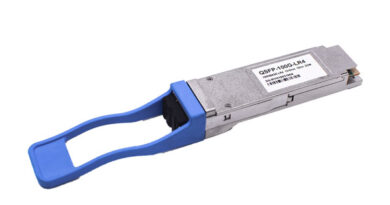How Abacus Can Improve Problem Solving Skills
Did you know the origins of the word “abacus”? It is derived from the Latin word meaning “flat surface.”
One of the earliest calculators, the Abacus, has a unique position in the history of mathematics.
Abacus offers kids several advantages, such as observation, listening, and concentration. Besides these cognitive developments, learning how to use an abacus will help your child improve their problem-solving skills.
When to Start Learning Abacus
If you’re curious when a youngster should start taking abacus courses, they can begin as early as age 4. They have a more delicate grasp of how to utilize the beads and arrive at the exact result since their brains are developing correctly at this age.
The best way to master the techniques of the Abacus is to attend regular Abacus classes and finish the Abacus course.
You do not need to fret! The development of mental math skills happens only gradually. Your child has to start simple with easy addition and subtraction, moving forward with multiplication, and finally, division.
Many people find mathematics to be terrifying from an early age. Even college-going students have a fear of numbers. Nevertheless, the study of mathematics is said to improve a child’s problem-solving skills. Therefore, it is crucial to introduce mathematics to your child via Abacus early in their lives

3 Ways That Abacus Helps in Problem Solving Skills
.
Children need to learn problem-solving techniques since they will apply them in all parts of their lives, including at home, in education, and on the job.
How does Abacus help in problem-solving, exactly?
By learning Abacus, your child will learn how to split an issue into smaller components and then come up with a solution.
The ability to do simple mathematical tasks like addition, subtraction, multiplication, and division without difficulty says a lot about your child’s problem-solving skills. Using speed and precision, the Abacus will help your child become an expert in mathematics.
1. Better Visualization
We know that we cannot actually touch a number but only visualize it. This is one of the primary reasons that make mathematics so scary! Because kids cannot touch it or feel it. It is difficult to grasp something that cannot be touched.
Children are urged to utilize a virtual abacus very quickly in their schooling. As a result, they can solve issues fast by visualizing an abacus. The more your child employs this strategy, their capacity for imagination and vision grows.
The simplest method to help your children overcome their fear of mathematics is to turn abstract numbers into items they can connect to, see, and even touch.
With Abacus, your child can now sense and interpret numbers with the help of an image.
The image of the Abacus’s bead position will allow your child to see the numbers virtually. The numbers are not abstract anymore!
2. Mental Math Skills
The capacity to complete math equations without the help of a calculator is known as mental math. The skill to perform calculations rapidly and correctly is called “computational fluency,” which is developed through mental math.
When kids use an abacus to solve a mathematical issue, they also develop their reasoning abilities. You will notice this when your child instantly picks up which formula to use to solve a particular sum.
These analytical and reasoning skills will come in handy since they can use these abilities in everyday situations as they grow older.
3. Boosts Self Confidence

Doing the math on an abacus boosts your child’s self-confidence. How? Solving math problems quickly will get them compliments from their instructors, parents, and friends. That boosts their confidence.
Witness them participating in championships at the national and international levels!
Doing this, they are frequently exposed to various programs and interact with diverse audiences.
This significantly increases children’s self-esteem and confidence thanks to better mental skills. Additionally, it gives them the confidence to deal with any problem they face in the future.
Conclusion
Effective problem-solving techniques can reduce the burden of solving mathematical sums accurately. Also, this will enhance academic success. In the end, learning to use an abacus will lessen your child’s dislike of mathematics.
Your child must receive proper instructions on using an abacus before becoming skilled at using it for calculating. Children are also required to practice it diligently.
Nowadays, there is a lot of demand for abacus lessons. But you must enroll your child in the proper one. Platforms like EnthuZiastic ensure that your child falls in love with mathematics! Teachers motivate them to do well in the subject.
Once taught, your child will use an abacus like an expert! They can now perform complex mental calculations involving multiple digits.
If you feel that an abacus can genuinely help your child with problem-solving skills, then let us know in the comments.



